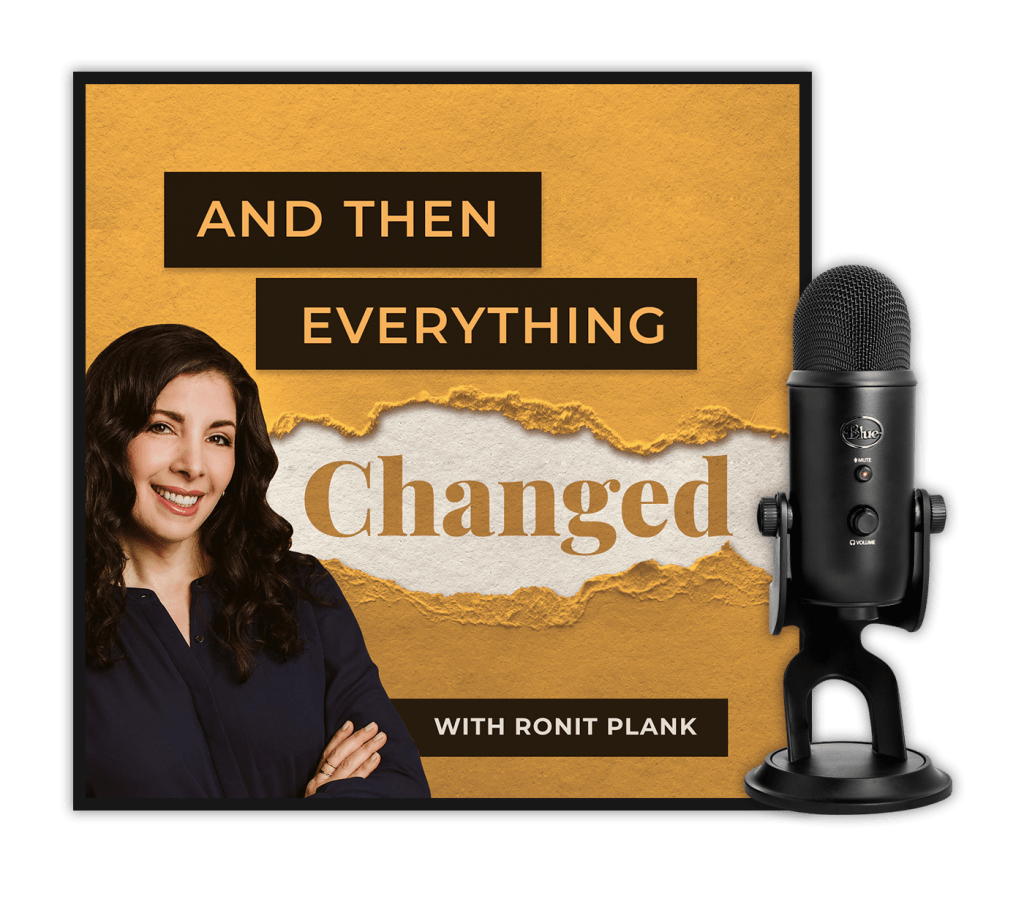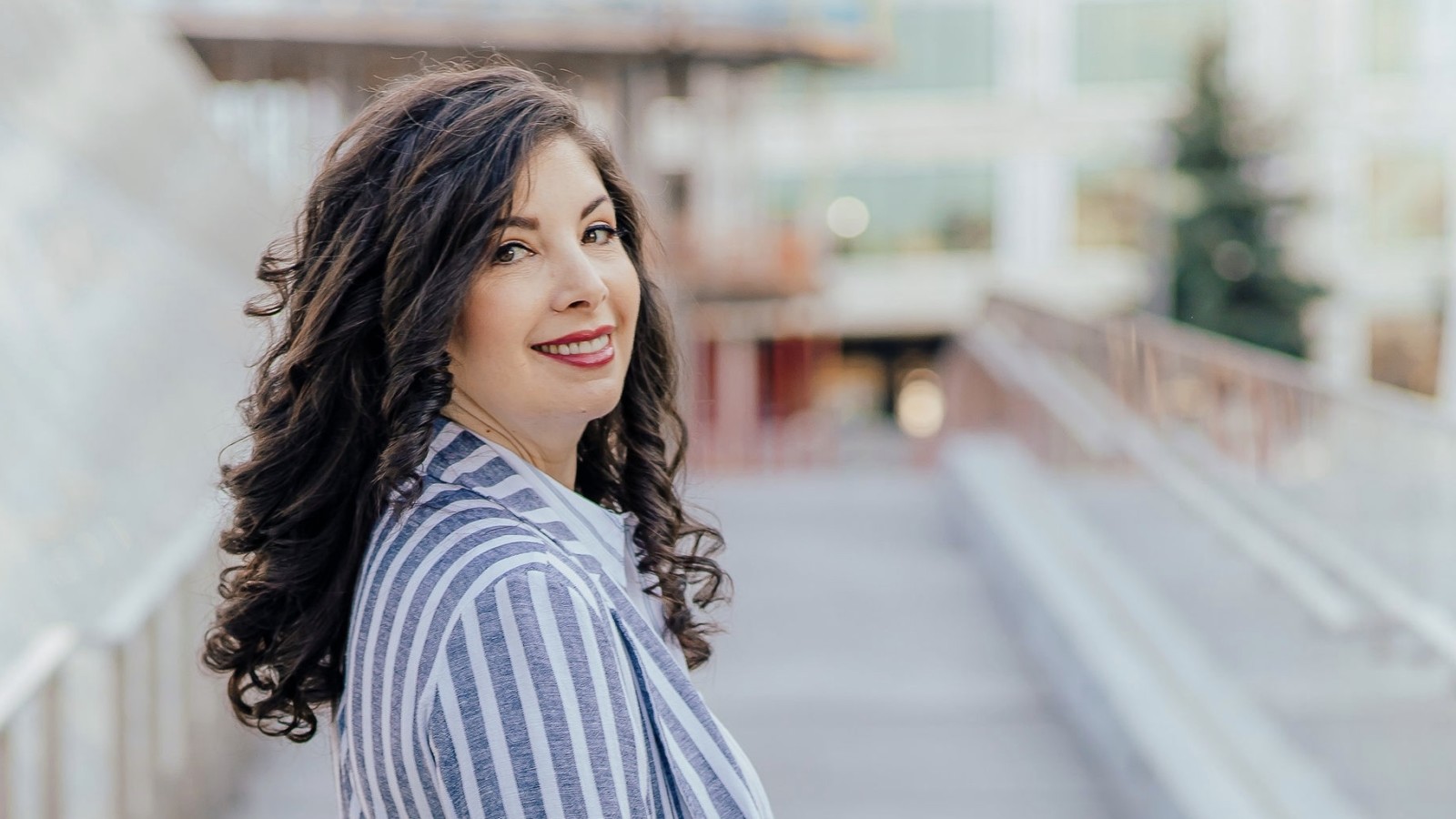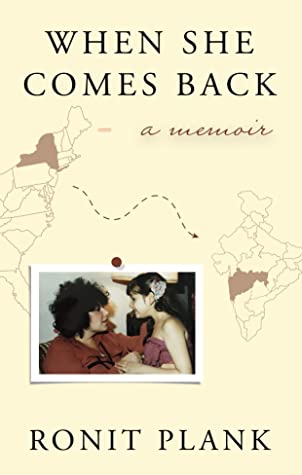I had the honor of conversing with award-winning podcaster and author Ronit Plank about her transformative journey and how she is hoping to be helping others overcome obstacles with her podcast and her upcoming memoir. Ronit is a native New Yorker who now resides in Seattle and host and produce the award-winning podcast And Then Everything Changed.
She has written for The Atlantic, The Washington Post, The HuffPost, and Salon, among others. She is the author of the upcoming memoir When She Comes Back about losing her mother to the guru Bhagwan Shree Rajneesh. Her short story collection Home Is A Made Up Place won the 2020 Eludia Award for fiction and will be released in 2022.
Hi Ronit, Thank you for taking the time to chat with me today about the transformative journey, your podcast, and the release of your memoir. Ronit, you’ve done so much already and have worn so many hats, what do you think defines you the most now?
Ronit – I think the ability to be still and listen; to my guests, to myself. I used to do lots and lots of talking at people; I was uncomfortable with silence and the in-between spaces but now I’ve grown to appreciate those reflective moments and the ways in which they let information in.
How did you come up with the idea for your podcast And Then Everything Changed?
Our life experiences often don’t fit into neat containers or cohesive stories like they do in movies and books. Yet, people love movies and books in part because they create order out of chaos. I think there are throughlines in our lives when we look for them; pivotal times that shaped our decisions and impact how we decide to live and I wanted to highlight those.
Do you position your podcast in the same sphere that Oprah did? Making public stories that were once taboo? Please elaborate.
I want to get close to a story, to someone’s lived experience so I better understand what they’ve gone through and survived. Most stories once considered taboo were so because shame was involved. People often experience shame when they’ve been victimized or treated poorly though they didn’t do anything wrong. I think it’s important to air all kinds of stories and bring them into the light so others can see they are not alone and that what happened to them is not their fault.

Do you hope your interviews to be transformative for your audience and for your guests? Please elaborate.
I hope that listeners get to know my guests and gain a sense of their lives and see that though how we grow up and who we learn from can be so different from one another, our challenges, what we overcome, and how we feel, share so much common ground. My guests are from vastly different backgrounds, levels of privilege and access, even countries, yet they are willing to reflect on the challenges they’ve faced with vulnerability and honesty and I think that is what draws listeners. These are not simple stories about easy lives; they are interviews about grit and resilience and holding onto compassion while surviving some of the most difficult experiences in life.
We, at Thrive Global are very focused on stories that inspire and heal. Your podcast seems to be aligned with our focus. Can you share with us one or two anecdotes from your interviews that would be particularly helpful to our audiences?
When I was young, I thought that if I just heard the right quote, found the right advice, I would understand how to live and life would become clearer to me. I eventually grew out of that phase of collecting quotes in the hopes they would solve my problems but in doing this podcast I’ve gotten to learn many lessons. For each episode I publish I feature at least one quote from my guest to give listeners the sense of their story and what they have learned. About 4 months into doing the podcast I realized that in a way, I was still seeking clues and insight into living a good life. It’s hard to choose which from my 60 plus episodes to share here but here are a few I love a lot.
“As soon as we figure out we might be struggling, we might be in pain, is when we can actually start healing and moving forward.” My episode 52 with guest Samuel Burwell, a young father who lost his own father in the summer of 2019 and didn’t realize the intensity of his grief until a friend checked in on him.
“We can’t change anyone but ourselves. But when we change ourselves, people around us change by default.” My episode 47 guest Heather Vickery had to face the truth of who she was and what she wanted in her life.
“I spent so many years hating the very parts of myself that others were trying to love.” My episode 46 guest Britt East, author of The Gay Man’s Guide to Life.

Since in addition to giving others a forum to share their experience, you are also a storyteller, could you define what you see as a “meaningful experience”?
I think a meaningful experience is one that alters the trajectory of a life or one that irrevocably alters our thinking which then changes the way we move through our lives and how we understand what has happened to us. Meaningful is subjective too, if you ask siblings to remember notable periods of their childhood, they will often recall different events entirely. That’s because we all make meaning in different ways, from different experiences.
How does your podcast tie into the release of your memoir?
When I launched my podcast on Halloween 2019, I didn’t realize how it would tie into my memoir. But what I’ve realized is that the questions I ask my guests about their lives are similar to the questions I was asking myself when I was writing When She Comes Back: How do people become who they are? How do we live after a loss? Why are some people able to create a new life filled with what they once were missing even though they have no blueprint for it? How do they find the strength to keep searching and pushing for what they want? Why is vulnerability key to lasting growth? These questions intrigue me and keep me searching.
Ronit, do you have a life mission and if you do, what is it?
I want people to know their experience matters, the world is big enough to hold us all. I want them to know that their voice is necessary and needed and that only they can convey what it is they have lived through. Pain may break us, but courage and vulnerability put us back together.
What has been your greatest achievement so far?
I would say my marriage and being a mother to my two children. I didn’t have a blueprint for a romantic relationship that included vulnerability, and growth, and courage and so many people in my family—both sides– got divorced or never partnered up. To be able to break my old pattern and beliefs and discover a good marriage, that an honest whole-self relationship is possible without running away, is something I am proud of and grateful for. And I am thrilled to be a parent and have this opportunity to mother my kids in ways I missed out on.
What is your best advice for others who are thinking of starting a podcast?
I say go for it! If you have a great idea for a show, something you feel passionate about sharing, podcasting is a great platform. And you get to decide how much work you want to do and what you’re up for. There’s so much flexibility in the field; you get to define your offering and create it any way you want. Podcasting is very nimble.
You are also an author and your first book, a memoir is coming out May 2021 just in time for Mother’s Day. What can you tell us about your book? Its title?
My memoir When She Comes Back is about the loss of my mother to Bhagwan Shree Rajneesh the guru featured in Netflix’s docuseries Wild Wild Country and our eventual reconciliation. My book begins the first-time mother leaves and is about giving up one’s power, the role childhood plays in our ability to form attachments, and what happens when the person your life revolves around can’t stay.
What is the purpose of your memoir?
I didn’t have a purpose when I began writing this book other than to get my story down. Then, as I published more and more essays about my childhood and about the way Bhagwan Shree Rajneesh and his sannyasins or followers have been depicted in the media, I wanted to chime in and share my family’s story. I am only one person whose mother left to follow this guru but many children lost parents to movements promising enlightenment and better lives. I wanted to shed light on what growing up with this loss was like for me and how I came to have a strong relationship with my mother in the aftermath of our early history.
You spoke of being reconciled with your mother, what resources did you use to heal from the trauma of separation?
Therapy, therapy, therapy! And self-reflection and hard work; I was lucky to marry a man who was also up for the challenge and we grew together. I think also I realized that the more I cared about myself and could accept myself, the more my other relationships improved.
What is the greatest lesson you have learned and how has It affected your parenting?
I’ve learned that though I didn’t want to admit it as a kid because I would have been left without the strength I needed to get through my childhood, a mother (and/or father) is the most consequential person in a person’s life. They help set the tone for everything that comes after. I try to remember my influence on my children and the effect my and my husband’s interactions have on them.
Could you share with us an extract from your book that is most telling?
One that is important to me is the legacy of parental abandonment which I talk about in my memoir: “That’s one of the most damaging legacies of leaving children: the doubt they carry that they’re good enough to stick around for. I know I’ve struggled with that my whole life.”
Whether the abandonment is emotional or physical a child will feel the consequences forever and will have to work through their feelings of being inadequate or unlovable or leavable in most of their relationships to come. It’s not easy to do that and the work is not for everybody; some people will back away from it and I don’t blame them. It’s so hard to fortify yourself when the most important person/people in your world decide they don’t need to stay with you.
Where will it be available?
My memoir will be in paperback, Kindle, and in audiobook available for purchase at independent bookstores as well as major bookstores and online. I will also have a link on my website to purchase directly from my publisher, Motina Books.
Besides the release of your memoir, what is coming next for you?
I’ve just accepted the role of Creative Nonfiction Editor for a literary magazine I am thrilled to work with and my short story collection Home Is A Made-Up Place recently won Hidden River Arts’ 2020 Eludia Award and will be published by Sowilo Press in 2022. I’ll be appearing at Town Hall Seattle on the evening of May 11th to talk about my memoir and also be doing other virtual events with independent bookstores like Third Place Books and Queen Anne Book Company in Seattle, North Bank Books in Oregon, and Pagination Bookstore in St. Louis among others. I have a novel-in-progress and a nonfiction book I am preparing a proposal for plus a whole bunch of interviews of And Then Everything Changed which I’m excited to edit and release.
Last pearl of wisdom?
I think that one of the most powerful lessons I’ve learned again and again is that there’s no escaping yourself. As they say, wherever you go there you are. And that means in order to break patterns that don’t serve you anymore, in order to deepen your relationships, you will have to be brave and look at yourself with clear eyes. You will have to accept the parts of yourself that are imperfect and work on the parts you no longer want to carry with you anymore. You will need to roll up your sleeves and get to work.
Thank you so much for speaking with me today. I’ll make sure to subscribe to your podcast.



